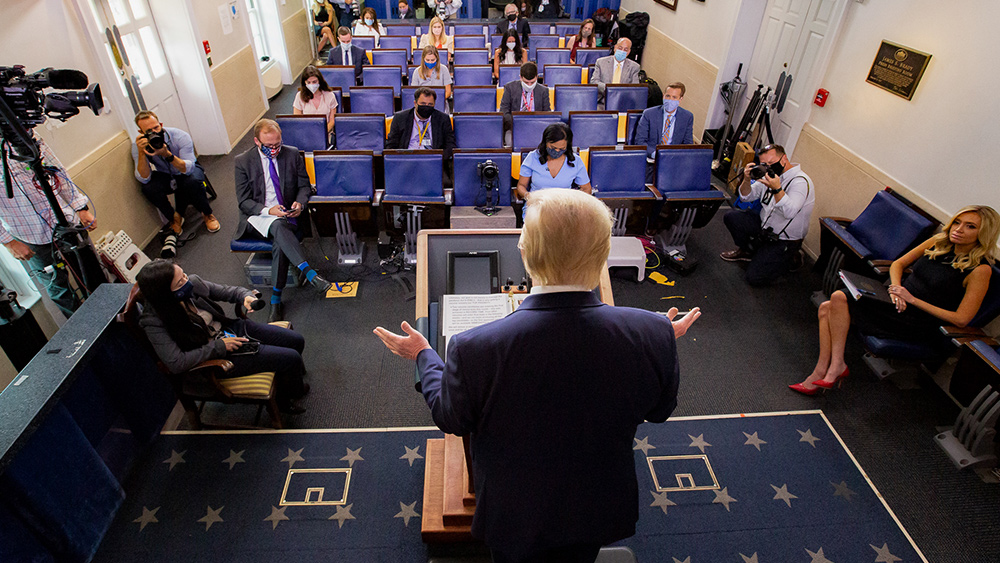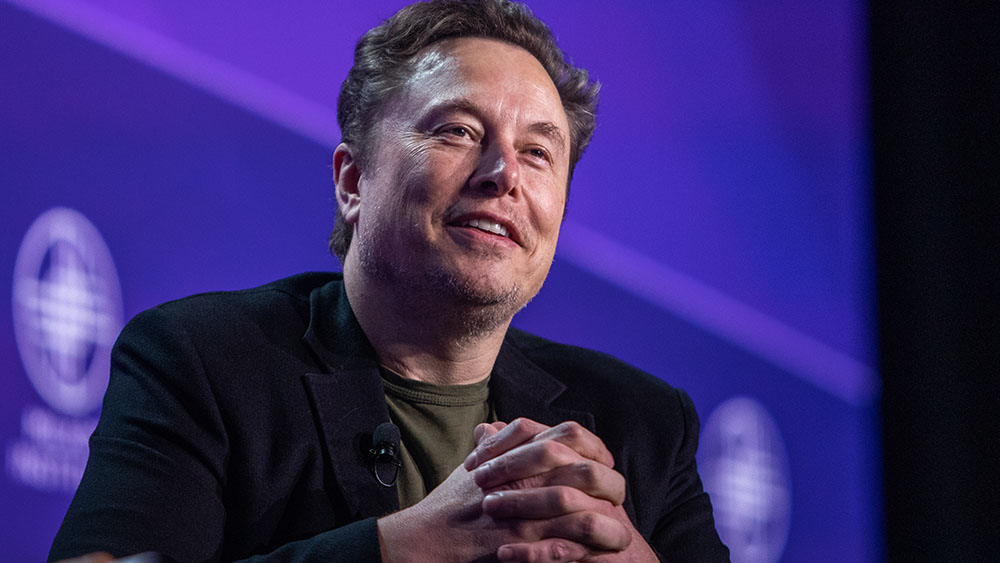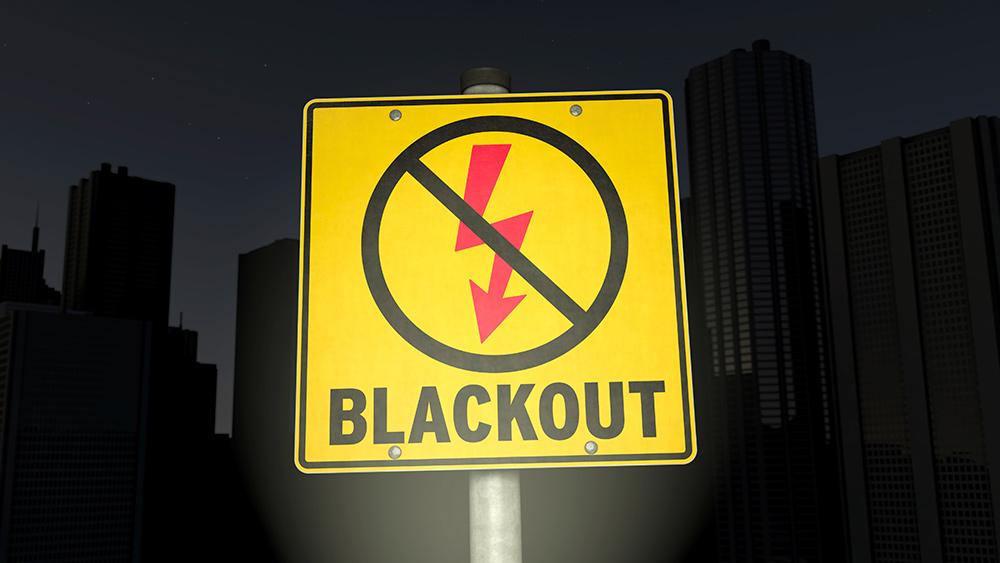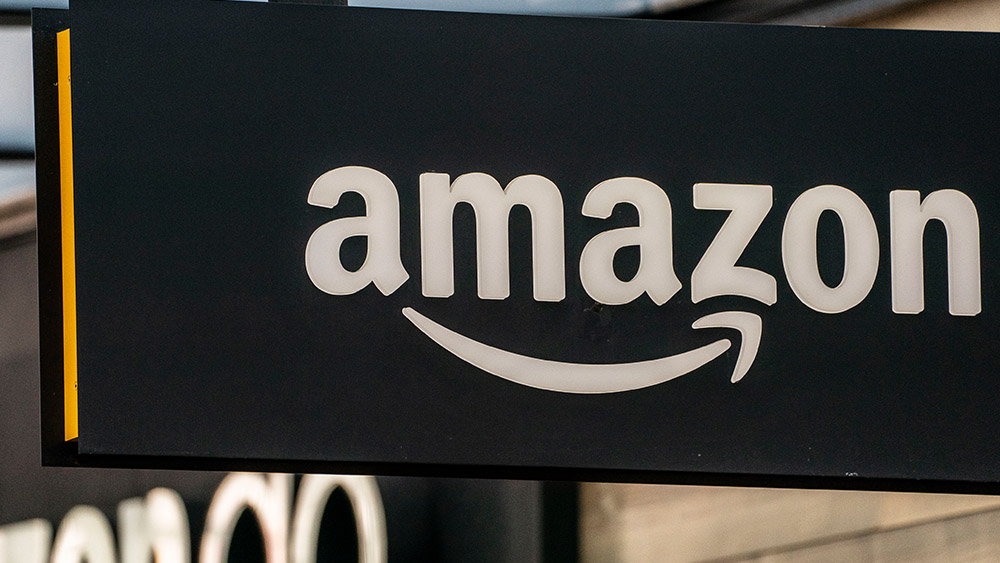Trump White House welcomes podcasters and influencers to press briefings as trust in MSM declines
By avagrace // 2025-02-05
Tweet
Share
Copy

- The second Trump administration announced it will grant White House press credentials to podcasters, social media influencers and independent content creators, marking a significant shift from the traditional press corps model.
- White House Press Secretary Karoline Leavitt cited declining trust in mainstream media (MSM), with only 36 percent of Americans in 2024 expressing confidence in traditional news outlets, as a key reason for the change.
- A front-row seat in the briefing room previously reserved for staff will now rotate among independent media representatives, and approximately 440 journalists whose credentials were revoked under the previous administration will have access reinstated.
- The move aligns with President Donald Trump’s criticism of legacy media and his successful 2024 campaign strategy of bypassing traditional outlets to connect directly with audiences through podcasts and social media.
- While supporters view the policy as a necessary evolution in media engagement, critics worry it may undermine journalistic standards and accountability by including untrained influencers in White House reporting.
The new administration's approach to new media
Leavitt emphasized that the Trump White House is committed to adapting to the "new media landscape," a strategy that proved effective during the 2024 campaign. Trump's appearances on popular podcasts hosted by figures like Joe Rogan, Theo Von and the Nelk Boys allowed him to bypass traditional gatekeepers and connect directly with audiences. This approach, Leavitt argued, is essential for ensuring the administration's message reaches all Americans, not just those who consume legacy media. The policy change also includes reinstating press credentials for approximately 440 journalists whose access was revoked under the previous administration. The press secretary framed this as a corrective measure, ensuring that independent voices are not excluded from covering the White House. While the announcement was met with enthusiasm from many in the new media space, it has also raised questions about the implications for journalistic standards and accountability. Critics argue that opening the briefing room to influencers and content creators could dilute the rigor of White House reporting, as these individuals may lack the training or ethical frameworks of traditional journalists. But supporters see the move as a necessary evolution in a media environment where legacy outlets are increasingly seen as out of touch with the public. This policy shift is more than just a logistical change; it's a statement about the future of media and the role of the press in a democracy. By embracing new media, the second Trump administration is challenging the monopoly of legacy outlets and redefining who gets to ask the questions that shape public discourse. Check out WhiteHouse.news for similar stories. Watch Rob Finnerty pointing out that the generations-long media "psy-op" is finally over in this clip. This video is from the NewsClips channel on Brighteon.com.More related stories:
Trump administration unveils new rules to expand White House media access. Media's failed smear campaign against Trump cabinet nominees highlights declining influence. Trump ushers in new era of media engagement, prioritizes independent voices over Big Pharma-funded propagandist media. Sources include: RT.com HollywoodReporter.com TheHill.com Brighteon.comTweet
Share
Copy
Tagged Under:
mainstream media freedom White House independent media journalism Trump administration new media news cartels legacy media content creators liberty influencers press briefing second term Karoline Leavitt podcasters traditional media
You Might Also Like
Darren J. Beattie joins Trump State Department — Issues exclusive message to loyal Revolver readers
By News Editors // Share
India Prime Minster wants to develop AI that is without BIAS
By Lance D Johnson // Share
Death tax on family farms: A betrayal of Britain’s rural heritage
By Willow Tohi // Share
Musk mocks pro-Western Russian and Ukrainian media outlets amid USAID funding freeze
By Belle Carter // Share
Recent News
Earth-like soil patterns on Mars reveal clues to the planet’s climate history
By willowt // Share
Virologist who endorsed HCQ for COVID-19 appointed to top pandemic post at HHS
By ramontomeydw // Share










